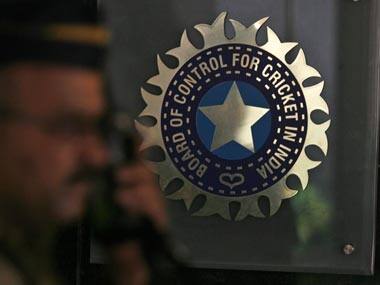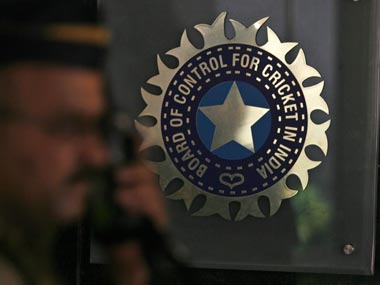The BCCI, the world’s richest cricket body, apparently wants some more – some more money that is. Reports surfaced yesterday of BCCI head honcho N Srinivasan meeting Cricket Australia chairman Walter Edwards to discuss a new revenue sharing agreement once the current deal expires in 2015. The way things work now is that all 10 Test playing nations get an equal share of ICC revenue, which is the money the ICC makes from the tournaments it holds e.g. the World Cup. The BCCI pulled in Rs 33 crore from the ICC last year. It also made Rs 434 crore from its own operations and has Rs 1100 crore just sitting in the bank earning interest because it doesn’t know what else to do with it. [caption id=“attachment_1264579” align=“alignleft” width=“380”]
 What the BCCI wants, the BCCI tends to get. Reuters[/caption] The BCCI’s logic is simple. It is responsible for 75 percent of the ICC’s revenues so it should get a bigger slice of the pie. BCCI secretary Sanjay Patel calls it a “legitimate right issue” and “just and fair”. He claims N Srinivasan has studied the economics and come up with a formula that some sources think result in the BCCI getting as much as USD 500 million over four years. What it really amounts to is a board that already has more money than it knows what to do with simply more cash to stash because, well, because it does. This is worrying on multiple levels. The first is cricket is meant to be competitive on the field but off the field the cricket playing countries are custodians of the game. They are a collective working for the collective well being, not the individual interests of each board. Everyone benefits when all the countries are better off. But if the BCCI sees cricket as a zero-sum game between each board, then for the Indian board to prosper, other boards necessarily have to suffer The second is other boards are already suffering. The Sri Lanka Cricket board has been in debt for years and back in 2010-11 went eight months without paying its players. In July this year New Zealand’s Matthew Sinclair quit cricket because he could not support his family. Zimbabwe cricket has been a disaster for years while Pakistan is beset with problems that extend far beyond the field. The West Indies are a pale shadow of the team they used to with kids taking to other sports that offer greater monetary reward and Bangladesh struggles to get regular cricket as it is. Even the current top ranked Test side, South Africa, has to strive to make money, with India’s shortened tour reportedly resulting in a big loss for Cricket South Africa. That leaves just three boards – India, Australia and England – with any semblance of financial security. Clearly, cutting funding to 70 percent of Test playing nations is going to hurt the international game. The irony is if the BCCI was to give up its share of Rs 33 crore for 2012-13, it would not hurt its ability to run cricket in India one iota. The board makes plenty thanks to the IPL. But subtract a few crores from Zimbabwe or Sri Lanka, and they may not be able to organise ‘A’ team tours or provide new equipment for age-group cricket. This impacts the sport at its very roots. If kids find they don’t have access to the game, they will naturally turn to other sports. The pipeline may not run dry, but it would certainly sprout a big leak. In time, this would compromise the quality of international cricket even further. Finally, if these countries can’t afford to pay their players, that means more players could quit international cricket and turn into Twenty20 hired guns - Have bat, will travel. The BCCI believes it has rights. It forgets it has obligations and duties too. If it continues to tug at the fabric of international cricket, it could just end up unravelling it. Then again, that might be just what the BCCI wants.
What the BCCI wants, the BCCI tends to get. Reuters[/caption] The BCCI’s logic is simple. It is responsible for 75 percent of the ICC’s revenues so it should get a bigger slice of the pie. BCCI secretary Sanjay Patel calls it a “legitimate right issue” and “just and fair”. He claims N Srinivasan has studied the economics and come up with a formula that some sources think result in the BCCI getting as much as USD 500 million over four years. What it really amounts to is a board that already has more money than it knows what to do with simply more cash to stash because, well, because it does. This is worrying on multiple levels. The first is cricket is meant to be competitive on the field but off the field the cricket playing countries are custodians of the game. They are a collective working for the collective well being, not the individual interests of each board. Everyone benefits when all the countries are better off. But if the BCCI sees cricket as a zero-sum game between each board, then for the Indian board to prosper, other boards necessarily have to suffer The second is other boards are already suffering. The Sri Lanka Cricket board has been in debt for years and back in 2010-11 went eight months without paying its players. In July this year New Zealand’s Matthew Sinclair quit cricket because he could not support his family. Zimbabwe cricket has been a disaster for years while Pakistan is beset with problems that extend far beyond the field. The West Indies are a pale shadow of the team they used to with kids taking to other sports that offer greater monetary reward and Bangladesh struggles to get regular cricket as it is. Even the current top ranked Test side, South Africa, has to strive to make money, with India’s shortened tour reportedly resulting in a big loss for Cricket South Africa. That leaves just three boards – India, Australia and England – with any semblance of financial security. Clearly, cutting funding to 70 percent of Test playing nations is going to hurt the international game. The irony is if the BCCI was to give up its share of Rs 33 crore for 2012-13, it would not hurt its ability to run cricket in India one iota. The board makes plenty thanks to the IPL. But subtract a few crores from Zimbabwe or Sri Lanka, and they may not be able to organise ‘A’ team tours or provide new equipment for age-group cricket. This impacts the sport at its very roots. If kids find they don’t have access to the game, they will naturally turn to other sports. The pipeline may not run dry, but it would certainly sprout a big leak. In time, this would compromise the quality of international cricket even further. Finally, if these countries can’t afford to pay their players, that means more players could quit international cricket and turn into Twenty20 hired guns - Have bat, will travel. The BCCI believes it has rights. It forgets it has obligations and duties too. If it continues to tug at the fabric of international cricket, it could just end up unravelling it. Then again, that might be just what the BCCI wants.
Tariq Engineer is a sports tragic who willingly forgoes sleep for the pleasure of watching live events around the globe on television. His dream is to attend all four tennis Grand Slams and all four golf Grand Slams in the same year, though he is prepared to settle for Wimbledon and the Masters.
)